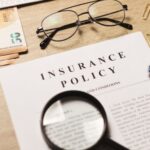While most people are aware that they need insurance to cover their car, they might not have done as much research as they should. This detail can cause financial problems as soon as you drive off of the lot. Plan for freedom will help you comprehend the options available to you regardless of whether it’s auto insurance, home insurance, or business insurance. Plan for freedom will help you comprehend your options and help you choose the best plan for your needs.
Find out how long your existing car insurance will cover the new car. Gusner says that if you are replacing a vehicle on your insurance policy, the same coverage will usually apply to your new vehicle. It can take as little as 24 hours to complete, or as long as 14-days. So make sure you check it out before you buy. You may also not be covered if your car is being replaced.
Do not assume that the dealership will handle your insurance paperwork. The staff is often busy and it is not their responsibility to add a vehicle to your policy. Gusner says that if they take a look at your insurance card before letting you drive away, they assume you have checked your policy and are sure you have coverage. Remember that if you finance or lease a car, the lienholder may require that you have comprehensive and collision coverage. If you don’t have comprehensive or collision coverage, but you do have liability-only coverage, you should get it added before you drive away.
Know what you need. You need to know how much the car costs. However, it is important to also understand the coverage, limits, and deductibles that you will need. Gusner says that lienholders will often ask for deductibles of $500 or less. Talk to your agent about insurance.
Liability coverage covers the insurance that you must have to drive your car on the roads. Gusner says that most states require liability coverage in order to cover damages and injuries you might cause to others while driving your car.
Personal injury protection (PIP), which is part of your basic auto insurance policy, is mandatory in all no-fault states. This covers your medical expenses up until the limits of the policy, regardless if you are at fault for an accident. Talk to your agent again. She also advised that you make sure you understand the coverage, limits, and deductibles (comprehensive and collision have different deductibles) before you shop for insurance. This will ensure you get the best rate quotes.
If you owe more on your vehicle than it is worth, gap insurance is essential. As soon as you drive your car off the lot, cars begin to depreciate. Many car buyers end up with their vehicles totaled shortly after they purchase them, owing thousands more than their insurance covers. Gusner says that gap insurance covers the difference between the vehicle’s value at the time it is totaled and the amount you owe.
Collision insurance can protect you. What happens if your car is struck by another vehicle, such as a shopping trolley? Collision insurance covers your car. Gusner says that lienholders insist on you having collision insurance because the car is still their asset.
Comprehensive insurance protects your vehicle against weather-related damage. Are you in an area that is often affected by tornadoes and other weather-related damage? In a flood zone? Even if you don’t experience extreme weather, comprehensive coverage is a wise investment. This coverage protects your car in the event of damage by fire, theft, or vandalism. You can expect the lienholder again to insist that you have this coverage in order for the vehicle to be repaired or paid off if the total loss is complete.






